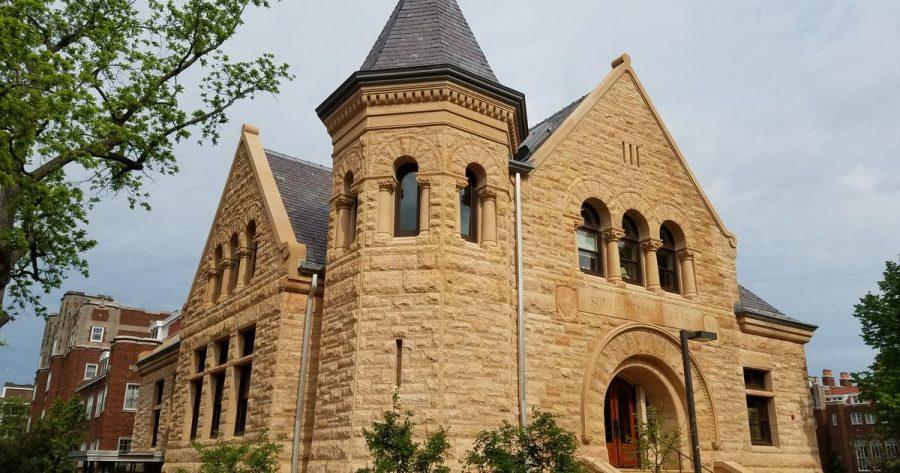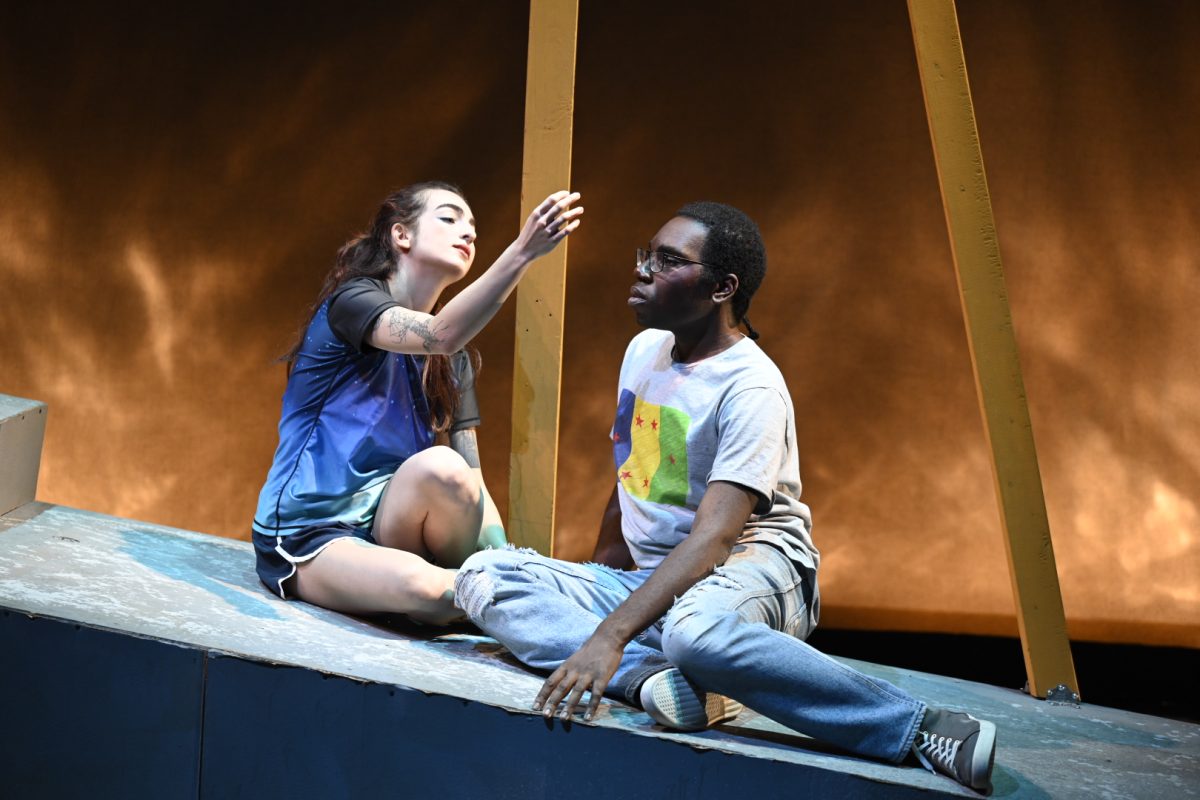How do you host campus tours, overnight visits, and Accepted Students Days when no one is allowed to visit campus? This is the challenge currently facing the Admissions Office, which has been uniquely impacted by the campus shutdown. In a normal spring term, several hundred admitted students would visit campus before the May 1 decision deadline, in addition to prospective students. Now, interactions that otherwise would have happened live will take place virtually.
“As an office, we’re so used to being on campus and getting to interact with these students — admitted students and prospective students — in our home space,” said Holly Buttrey ’14, Senior Assistant Dean of Admissions. In place of campus visits, the office is working hard to provide a variety of ways for students to interact with the Carleton community virtually.
The office has hosted two Zoom sessions for admitted students—“Being a Carl” and “Affording Carleton”—and has four more scheduled throughout April covering “Getting Support,” “Underrepresented Student Experience,” “Going Global,” and “Athletics and Recreation.” These panels and presentations, which include students and staff from different offices, would normally have taken place during Accepted Students Days, two overnight visit events that normally bring several hundred admitted students to campus in April. The first session, “Being a Carl,” was attended by almost 300 admitted students, according to Buttrey. These events have been publicized through the Class of 2024 Facebook page and the website for admitted students.
Last Friday, April 3, Saraswati Vadnais ’22 and two other student workers in the Admissions Office hosted a Q&A over Zoom attended by approximately 50 students. Students who wrote questions introduced themselves before the current students answered their question.
“It was a way to get the students to get to know each other’s faces, and just get to know each other a bit more,” Vadnais said.
According to Special Projects Coordinator Joey Silknitter ’22, while Zoom cannot replace the experience of coming to campus for Accepted Students Days, the online “Accepted Student Experience,” as it has been rebranded, is more widely accessible.
“In the past there might be people who can’t make it to Accepted Students Days events—we do have a travel subsidy, but let’s say for some other reason they still aren’t able to make it—they might now be able to participate in a Zoom conversation,” Silknitter said.
In addition to larger events over Zoom, the Admissions Office is trying to provide more intimate venues for prospective students to learn about Carleton. In larger presentations or panels, “It’s tough to ask your question in front of a hundred other accepted students who are in the chat,” said Overnight Hosting Coordinator Ephraim Benson ’21. “How do we make this more comfortable for everyone involved?”
In response to this challenge, Benson is matching admitted students with current students based on academic interests and where they are from, much like he would if everyone were still on campus, for one-on-one conversations. Seventy former overnight hosts have volunteered to talk with prospective students, and Benson is optimistic that this format will allow for the type of interactions that normally take place during overnight visits.
“When I went to my Accepted Students Days a few years ago, walking around and seeing campus was nice, but it’s not entirely a unique experience compared to a lot of other college visits,” Benson said. “But when you’re actually talking to current students and hearing about how they spend their time and what they like about Carleton, I think that’s when you really get that insight that’s helpful in making your college choice.”
Vadnais and other student workers have already been having personal conversations over Zoom, email, and text with admitted students who had indicated interest. “I really liked being able to talk to the students individually,” said Vadnais, who was originally hired to work for the Admissions Office over break giving tours. “I don’t know if we would have done that if this were a regular Spring break. We would have given campus tours, but those are usually with a large group of students.”
Tours are also undergoing a transformation. “We normally try to make the prospective student feel really connected to the community of Carleton,” said Tour Guide Coordinator Ella Milliken ’22. “That comes from walking around campus—our tours are largely anecdote-based, we don’t have a script or anything—so I think the hardest part for us is trying to mimic that experience for someone who can’t come on campus.”
Over 60 tour guides have volunteered to help however they can. Right now, that means recording videos of themselves answering questions they commonly get asked on tours—such as “How did you choose your major?” and “Why did you pick Carleton?”—which are then uploaded to the tour guide website.
Admissions is also developing a virtual tour, and student admissions bloggers are continuing to post from afar. Admissions is hosting virtual information sessions for prospective students several times a week that parallel the sessions normally offered regularly on campus. Silknitter is in the process of reaching out to leaders of student organizations to gauge interest in hosting virtual information sessions.
“What we are trying to do is create as many opportunities as possible for prospective students, those admitted students predominantly right now, to engage with Carleton,” Buttrey said. “What does that look like? That depends on what each student wants.”
Buttrey said that she has been happy with the turnout and enthusiasm for events they have hosted so far, and has been inspired by the “creativity and innovation” that Carleton students, staff, and faculty have shown in adapting to this new situation. The student workers “have all been incredible in terms of coming up with ideas, and following through with them and going on these adventures as we figure out technology and also what works well,” Buttrey said.
While the Admissions Office has been adapting quickly to the campus closure, some issues are out of their control. Buttrey, who works with international student admissions in addition to overseeing the visit experience, described the added uncertainties that international students face.
“On top of what has been a pretty consistently fluctuating immigration conversation, there is now the question of, will the federal government be distributing visas to countries where COVID-19 has hit the hardest? You can imagine questions coming from students who are in Italy, who are in Wuhan area in China, you can also imagine those similar questions coming from students in Seattle, in New York City. Beyond that, it’s also the travel component. When will airlines offer flights again? Do I want to deposit at a school this year or do I want to hold off until next year?”
In response to the uncertainty surrounding the impact of COVID-19 for both international and domestic students, Admissions is accepting requests for extensions to the May 1 deposit deadline in some cases. “If admitted students want an extension they can ask for it, and we can talk with them about that possibility,” Buttrey said. “That possibility has not existed in the past.”
Admissions is also anticipating more admitted and returning students to appeal their financial aid decisions given that “a family’s need might have changed pretty dramatically,” Buttrey said. Carleton will continue to meet 100% of demonstrated need for returning and newly admitted students.
Admissions staff and student workers have been happy with how engaged Carleton students have been with the admissions process this year. “I got a lot of emails the week after classes ended asking, ‘How can I help with admissions? How can I volunteer?’” Milliken said.
“We’re very aware that it’s uncharted waters,” Benson said. “We’re excited about it but of course we realize there are things that we haven’t anticipated that we’ll want to smooth out down the road.”













